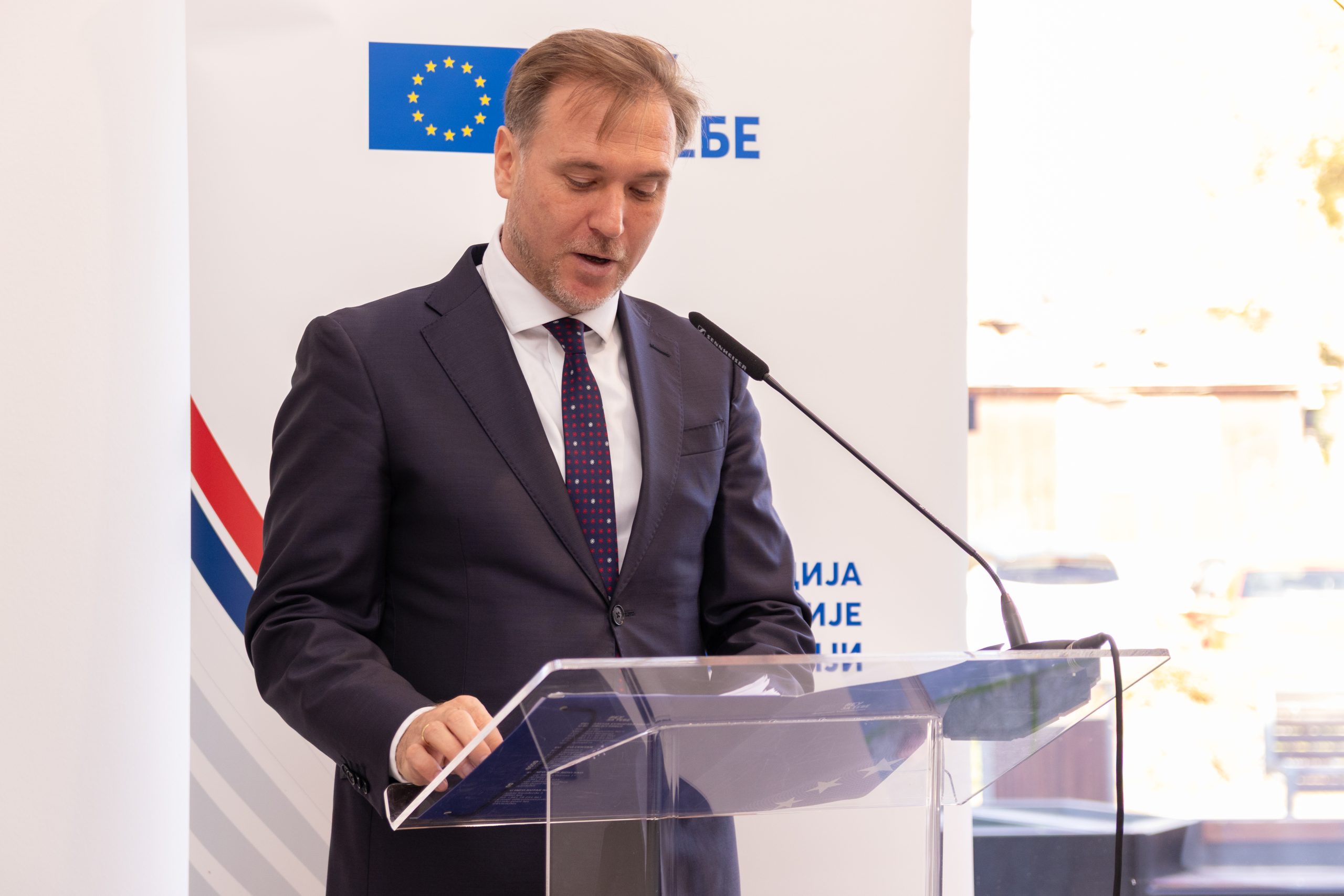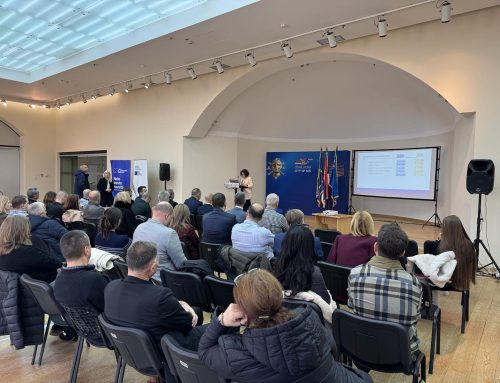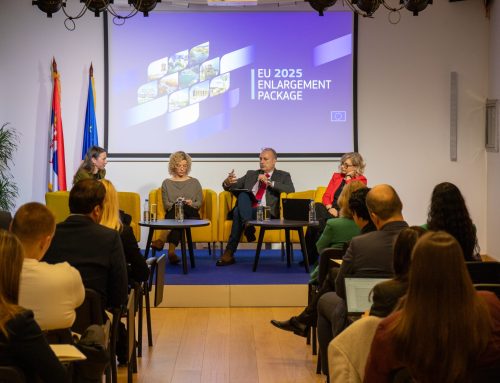The European Commission’s 2025 Annual Report on Serbia was presented on 13 November at the French Institute in Novi Sad by Črtomir Peter Fišinger, head of the Political Section of the EU Delegation to Serbia.
During the presentation, Fišinger emphasized that credible reforms are needed across all areas, while stressing that the European Union “remains firmly committed to enlargement, because a larger Union in the future means a stronger Union — one capable of promoting peace, stability and prosperity across the entire continent.”
“The annual report is not a document of criticism. It acknowledges progress, highlights challenges and outlines the way forward. The main conclusion is that the pace of reforms has significantly slowed,” Fišinger said, adding that citizens’ understanding of the EU accession process is crucial for Serbia’s future.
Presenting the EC report at events like this helps ensure that citizens are informed participants in the debate about Serbia’s future, he noted.
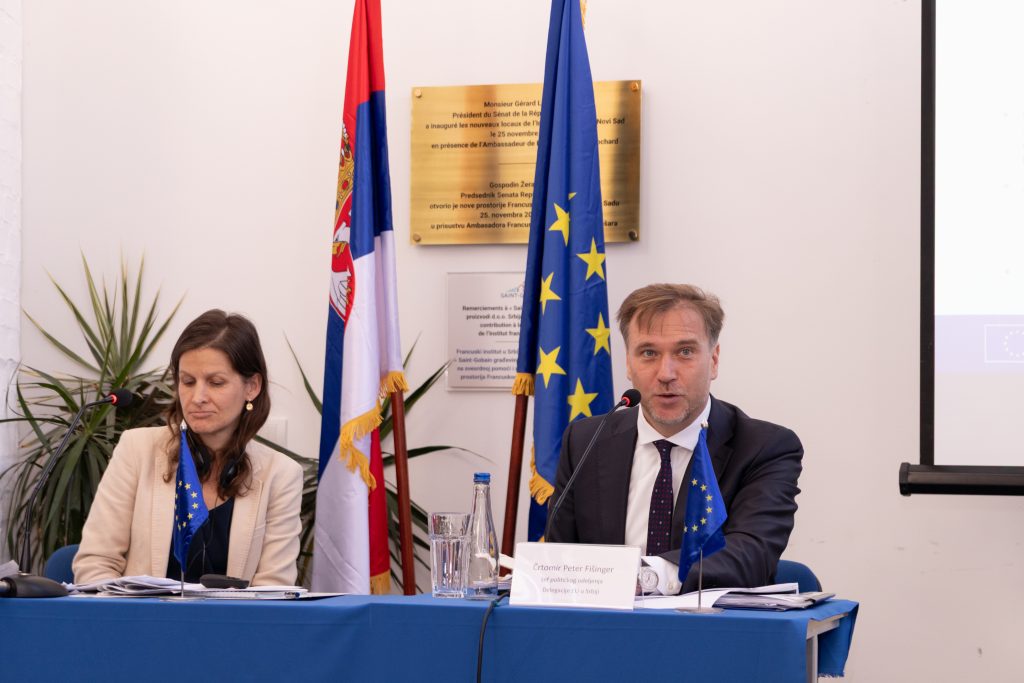
Katarina Motoskova of the EU Delegation to Serbia presented progress under Cluster 1, focusing on key economic indicators as well as overall financial cooperation and EU support. She underlined that Cluster 1 is fundamental—opened first and closed last—and that the report records solid economic results and continued alignment with certain EU internal market policies.
The European Commission assessed that Serbia meets the conditions to open Cluster 3 – Competitiveness and Inclusive Growth – with the formal decision now in the hands of EU member states.
In the report, the Commission welcomed recent progress in appointing a new Council of the Regulatory Authority for Electronic Media (REM), as well as the adoption of amendments to the Law on the Unified Electoral Roll, which established a commission to review the voter register.
“We urge that these processes be completed and carried out in a credible, transparent and inclusive manner, with the involvement of all relevant stakeholders,” Fišinger stated.
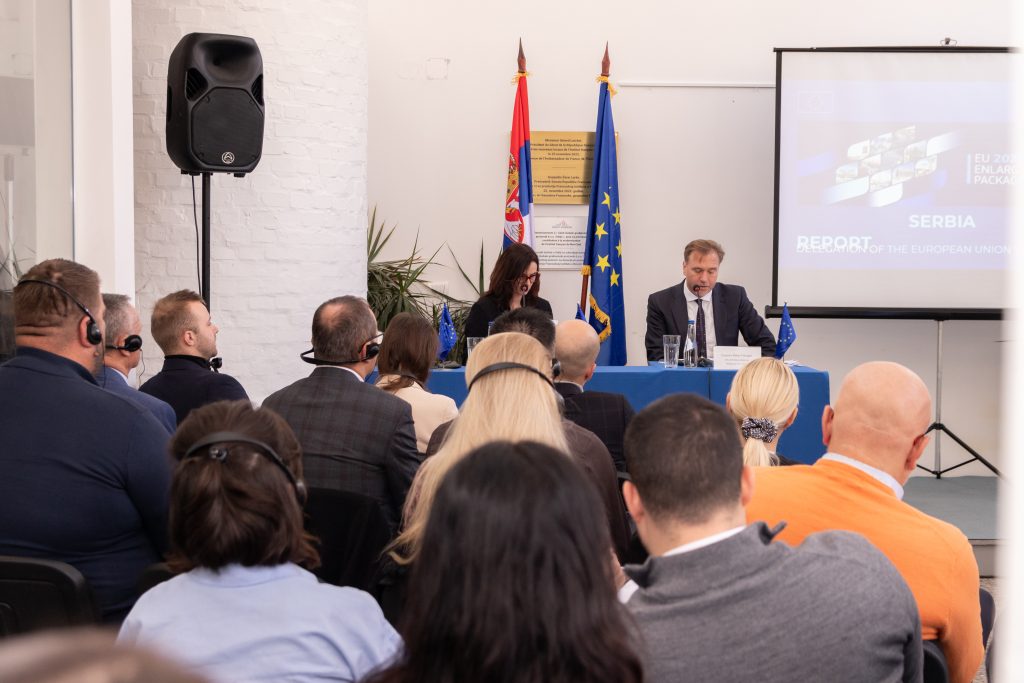
The Commission expects Serbia to overcome stagnation in the areas of the judiciary, rule of law and human rights. It highlighted the urgent need to improve freedom of expression and academic freedoms, and to reform the electoral framework in line with the recommendations of the OSCE Office for Democratic Institutions and Human Rights (ODIHR).
According to the report, divisive rhetoric has further deepened social fractures and weakened trust among key actors, underscoring the need to restore dialogue and refrain from anti-EU narratives.
“Serbia must clearly demonstrate its strategic choice and communicate the accession process more proactively. Tangible progress is needed in the rule of law, the electoral framework and media freedom,” was the message conveyed at the event.

